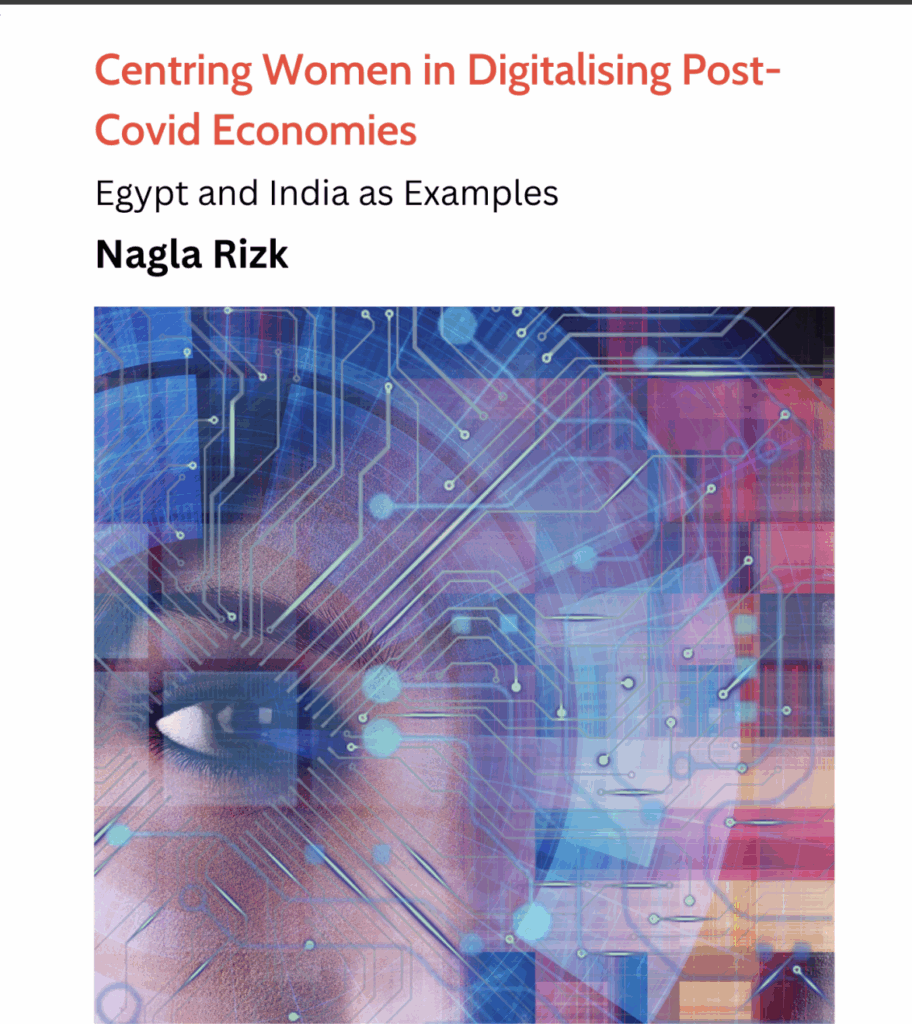Across the globe, the Covid-19 pandemic has had multiple grave repercussions on people’s lives. Most notable among these has been the intensified need for, and pervasive use of, digital technologies, available only to those who had prior access. This was witnessed globally between and within countries. This widening of the digital divide has typically fed into a persistent development divide and caused further exclusion of the disadvantaged, women included. Indeed, women bore the brunt of the pandemic as they had to juggle their roles as workers, caretakers, and home schoolers. With extra pressures placed on them at work and at home, women were the first to exit the labour market, and in some cases were the subject of domestic abuse. As digital, gender, and other socio-economic inequalities were exacerbated, new forms of work emerged, specifically using digital technologies locally and globally. While these technologies embody the potential of further exclusion of women, conscious awareness of the inherent challenges can lead to mitigating the risks and using the same technologies for inclusion and ensuring a feminist future of work in a highly automated world. This paper will explore the challenges and opportunities that women face in a post-pandemic digitising world, with Egypt and India as examples.

